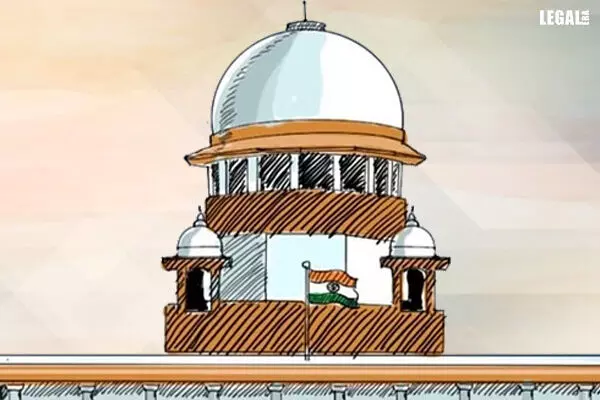- Home
- News
- Articles+
- Aerospace
- Artificial Intelligence
- Agriculture
- Alternate Dispute Resolution
- Arbitration & Mediation
- Banking and Finance
- Bankruptcy
- Book Review
- Bribery & Corruption
- Commercial Litigation
- Competition Law
- Conference Reports
- Consumer Products
- Contract
- Corporate Governance
- Corporate Law
- Covid-19
- Cryptocurrency
- Cybersecurity
- Data Protection
- Defence
- Digital Economy
- E-commerce
- Employment Law
- Energy and Natural Resources
- Entertainment and Sports Law
- Environmental Law
- Environmental, Social, and Governance
- Foreign Direct Investment
- Food and Beverage
- Gaming
- Health Care
- IBC Diaries
- In Focus
- Inclusion & Diversity
- Insurance Law
- Intellectual Property
- International Law
- IP & Tech Era
- Know the Law
- Labour Laws
- Law & Policy and Regulation
- Litigation
- Litigation Funding
- Manufacturing
- Mergers & Acquisitions
- NFTs
- Privacy
- Private Equity
- Project Finance
- Real Estate
- Risk and Compliance
- Student Corner
- Take On Board
- Tax
- Technology Media and Telecom
- Tributes
- Viewpoint
- Zoom In
- Law Firms
- In-House
- Rankings
- E-Magazine
- Legal Era TV
- Events
- Middle East
- Africa
- News
- Articles
- Aerospace
- Artificial Intelligence
- Agriculture
- Alternate Dispute Resolution
- Arbitration & Mediation
- Banking and Finance
- Bankruptcy
- Book Review
- Bribery & Corruption
- Commercial Litigation
- Competition Law
- Conference Reports
- Consumer Products
- Contract
- Corporate Governance
- Corporate Law
- Covid-19
- Cryptocurrency
- Cybersecurity
- Data Protection
- Defence
- Digital Economy
- E-commerce
- Employment Law
- Energy and Natural Resources
- Entertainment and Sports Law
- Environmental Law
- Environmental, Social, and Governance
- Foreign Direct Investment
- Food and Beverage
- Gaming
- Health Care
- IBC Diaries
- In Focus
- Inclusion & Diversity
- Insurance Law
- Intellectual Property
- International Law
- IP & Tech Era
- Know the Law
- Labour Laws
- Law & Policy and Regulation
- Litigation
- Litigation Funding
- Manufacturing
- Mergers & Acquisitions
- NFTs
- Privacy
- Private Equity
- Project Finance
- Real Estate
- Risk and Compliance
- Student Corner
- Take On Board
- Tax
- Technology Media and Telecom
- Tributes
- Viewpoint
- Zoom In
- Law Firms
- In-House
- Rankings
- E-Magazine
- Legal Era TV
- Events
- Middle East
- Africa
Long Period of Possession Won’t Essentially Translate into Right of Adverse Ownership: Supreme Court

Long Period of Possession Won’t Essentially Translate into Right of Adverse Ownership: Supreme Court
The Court was hearing an appeal moved by the Kerala Government challenging the High Court ruling
The Supreme Court has held that a long period of possession of land will not always translate into a right over the land through the principle of adverse possession.
In the Government of Kerala and Another v. Joseph and Others case, a division bench of Justice Abhay S Oka and Justice Sanjay Karol added, "When the land subject of proceedings wherein adverse possession has been claimed, belongs to the government, the Court is duty-bound to act with greater seriousness, effectiveness, care, and circumspection, as it may lead to the destruction of a right/title of the state to immovable property.”
The Court observed that assumptions cannot serve as the basis for taking away the government's rights over land and giving it to the persons not entitled to such rights.
The bench stated that to claim rights through adversity, the possession must be open, clear, continuous, and hostile to other claims by rival claimants. It added that the mental intent to possess the land or animus possidendi must be present. Mere permissive possession would not constitute a claim.
The Judges were hearing an appeal moved by the Kerala government challenging a ruling of the Kerala High Court. The Court had concluded that the land, originally belonging to the Kerala government, now belonged to a private party by virtue of the principle of adverse possession. The person possessed the land since 1940 when he acquired the title.
In 1983, his legal representatives filed a suit against eviction proceedings initiated by the state. A Munsiff Court allowed the suit, although, in 1995, a district Court quashed the ruling.
However, in the subsequent appeal, the High Court ruled in favor of the legal representatives and against the state. This prompted the state government to file an appeal before the Apex Court.
The Top Court found that the long possession of the private party was not proven sufficiently to satisfy the requirement of the "more serious and effective" inquiry contemplated when state rights are involved over the land.
It added, "Merely a long period of possession, does not translate into the right of adverse possession. Surmises, conjectures, and approximations cannot serve the basis for taking away the right over land resting with the state and place the said bundle of rights in the hands of one who did not have any such rights.”
Thus, the Court ruled in favor of the state, setting aside the High Court decision.



